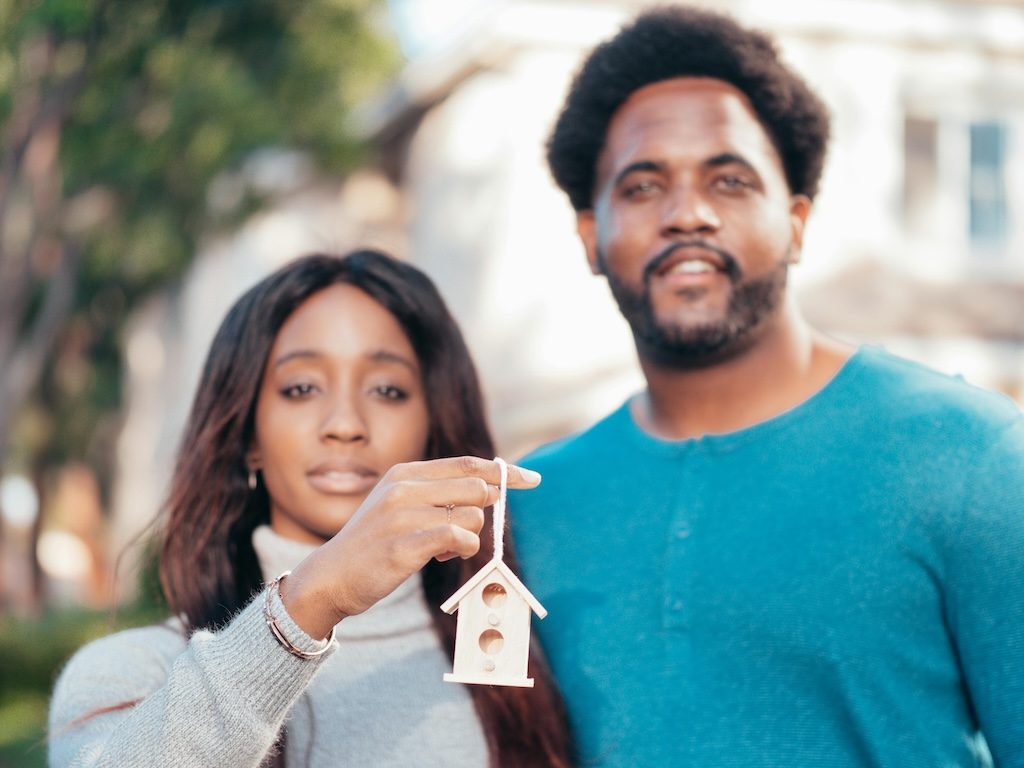A Beginner’s Guide: Starting a Group Home

Key Highlights
- Understanding the concept of group homes and their importance in providing a supportive environment for individuals with disabilities
- The steps involved in starting a group home, including identifying the target population, legal and regulatory requirements, and securing funding
- Setting up the group home by acquiring necessary equipment and designing the space for comfort and safety
- The step-by-step process of starting a group home, including developing a business plan, obtaining licenses and permits, hiring qualified staff, and marketing the group home
- The daily operations of a group home, focusing on creating a positive and supportive environment and managing finances
- FAQ section addressing common questions about the cost of starting a group home and challenges in running one
- Conclusion highlighting the importance of group homes in providing care and support for individuals with disabilities
Introduction
Have you ever thought about what it takes to open a group home? Starting a group home can be a rewarding venture that provides a supportive and caring environment for individuals with disabilities. However, it requires careful planning, understanding of legal and regulatory requirements, and dedication to creating a safe and comfortable space for residents, including those who may have a family member as their caregiver.
In this beginner’s guide, we will explore the key highlights of starting a group home, from understanding the concept of group homes to the step-by-step process of setting up and operating one. Whether you are passionate about making a difference in the lives of individuals with disabilities or looking for a business opportunity in the healthcare industry, this guide will provide you with valuable insights and practical information, including obtaining a “host letter,” to get started.
Understanding Group Homes
Group homes are small residential facilities that provide care and support for individuals with disabilities. They serve as an alternative to institutionalized care, offering a more personalized and home-like environment. Group homes are regulated by state agencies, such as the Department of Health, to ensure the safety and well-being of the residents. They play a crucial role in the community by providing housing, support services, and a sense of belonging for individuals with disabilities.
What is a Group Home?
A group home is a small residential facility that provides housing and support services for individuals with disabilities. It offers a supportive and community-oriented environment where residents can live independently while receiving the care and assistance they need. Group homes are typically designed to accommodate a specific population, such as individuals with developmental disabilities or mental health conditions, and can range from assisted living facilities that offer meals and cleaning services to residential care homes that also assist with daily activities such as bathing and dressing.
These homes are regulated by government agencies, such as the Department of Health, to ensure compliance with safety standards and quality of care, including food inspections. They provide a range of services, including personal care, medication management, social activities, and access to community resources. The goal of a group home is to promote independence, inclusion, and overall well-being for its residents.
The Role and Impact of Group Homes in the Community
Group homes play a crucial role in the community by providing a supportive and inclusive environment for individuals with disabilities. They offer a range of services and support tailored to the specific needs of the residents, promoting independence and community integration.
By providing housing and support services, group homes help individuals with disabilities live fulfilling lives and become active members of the community. These homes contribute to the overall well-being of the residents by offering personalized care, access to healthcare services, and opportunities for socialization and skill development.
In addition to benefiting the residents, group homes also have a positive impact on the community as a whole. They reduce the burden on families and caregivers by providing a safe and supportive alternative to home care. Group homes also create job opportunities in the healthcare sector, contributing to local economic growth. Overall, group homes play an important role in promoting inclusivity, independence, and well-being for individuals with disabilities.
Preliminary Considerations
Before starting a group home, there are several preliminary considerations to keep in mind. These include understanding the legal and regulatory requirements, determining the type of group home you want to open, and finding suitable real estate for your facility.
Identifying Your Target Population
One of the first steps in starting a group home is identifying your target population. Group homes can cater to various populations, such as individuals with developmental disabilities, mental health conditions, or substance abuse issues.
If you choose to focus on individuals with developmental disabilities, it is important to establish connections with the Department of Developmental Services or other relevant human services agencies in your area. These agencies can provide valuable information and support throughout the process of starting and operating a group home.
Understanding the needs and preferences of your target population is essential for providing appropriate care and support. Consider factors such as the level of support required, specific services needed, and any specialized training or certifications your staff may need to have.
Legal and Regulatory Requirements
Starting a group home involves complying with various legal and regulatory requirements. These requirements are in place to ensure the safety, well-being, and quality of care for the residents.
Government agencies, such as the Department of Health and Department of Developmental Services, oversee the licensing and regulation of group homes. Federal regulations may also apply, depending on the type of services offered by the group home.
Some of the common regulatory requirements include obtaining licenses and permits, meeting safety standards, maintaining proper documentation, and adhering to staffing ratios. It is important to research and understand the specific regulatory requirements in your state or region to ensure compliance and avoid any legal issues.
Getting Started
Once you have a clear understanding of the preliminary considerations and legal requirements, it’s time to get started on setting up your group home. This section will guide you through the process of developing a business plan, securing funding, and choosing the right location for your facility.
Securing Funding and Budget Planning
Securing funding is a crucial step in starting a group home. Depending on the scale and scope of your facility, you may need significant capital to cover expenses such as purchasing or renting a property, renovating the space, acquiring necessary equipment, and hiring qualified staff.
One option for funding is to explore small business loans from financial institutions. These loans can provide the necessary capital to start and operate your new group home. It is important to create a detailed budget plan that outlines the estimated expenses and projected income to ensure you have enough money to cover operational costs.
Other potential sources of funding include grants, donations, and partnerships with community organizations or government agencies. Researching and exploring all available options will help you secure the necessary funding to make your group home a reality.
Choosing the Right Location
Choosing the right location for your group home is crucial for its success. Consider factors such as the accessibility of the location, proximity to necessary amenities and services, and the overall safety of the neighborhood.
Research the local area to understand the demand for group homes and the availability of suitable real estate. It is important to assess the local residents’ attitudes and perceptions towards group homes to ensure a smooth integration into the community.
Additionally, consider the layout and design of the property. Ensure that it meets the needs of your target population, provides sufficient space for common areas and individual bedrooms, and adheres to safety regulations and accessibility standards.
By carefully selecting the location, you can create a welcoming and inclusive environment for your residents and foster positive relationships with the surrounding community.
Setting Up Your Group Home
Once you have secured funding and chosen the right location, it’s time to set up your group home. This section will cover the necessary equipment and resources needed for the facility, as well as designing the space for comfort and safety.
Necessary Equipment and Resources
Setting up a group home requires acquiring the necessary equipment and resources to provide quality care and support for the residents. This includes furniture, medical supplies, personal care items, recreational materials, and any specialized equipment or technology needed for individuals with specific needs.
It is important to ensure that all equipment and resources meet safety standards and are in good working condition. Regular maintenance and updates may be required to ensure the safety and well-being of the residents.
Additionally, consider the resources needed for staff training and ongoing professional development. Providing a supportive and well-equipped environment for both residents and staff will contribute to the overall success of your group home.
Designing Your Space for Comfort and Safety
Creating a comfortable and safe living environment is essential for a group home. Consider the layout and design of the space to optimize functionality and promote a sense of belonging for the residents.
Pay attention to safety measures, such as installing appropriate lighting, handrails, and emergency response systems. Ensure that the space is accessible for individuals with mobility challenges and meets all necessary safety regulations.
In terms of comfort, prioritize creating private and comfortable bedrooms for the residents, as well as common areas for socialization and recreational activities. Incorporate elements that promote a sense of homeliness and personalization, such as artwork, plants, and cozy furnishings.
By designing the space with both comfort and safety in mind, you can create a welcoming and supportive environment for the residents of your group home.
Step-by-Step Guide/Process
Starting a group home involves several steps and processes that need to be followed to ensure a successful operation. This section will provide a step-by-step guide to starting and operating a group home, from developing a business plan to marketing your services.
Step 1: Developing a Business Plan
The first step in starting a group home is developing a comprehensive business plan. A well-constructed business plan serves as a roadmap for your group home, outlining your goals, target population, services offered, and financial projections.
Include a description of your organization and its mission, an overview of the services you will provide, and an analysis of the market and competition. This will help you identify your unique selling points and differentiate your group home from others in the area.
Additionally, include a detailed financial plan that outlines your estimated expenses, projected income, and funding sources. Creating a business plan will not only guide you in the startup phase but also serve as a useful point of reference as your group home grows and evolves.
Step 2: Obtaining Licenses and Permits
Obtaining the necessary licenses and permits is a critical step in starting a group home. Depending on your location and the type of services provided, you may need to comply with regulations set by the Department of Health, Health Care Administration, and other government agencies.
Some of the common licenses and permits required for a group home include health facility licenses, food service permits, and zoning permits. These licenses ensure that your group home meets the necessary safety and hygiene standards.
It is important to research and understand the specific licensing requirements in your state or region. Contact the relevant government agencies to obtain the necessary applications and undergo any inspections or evaluations required.
Step 3: Hiring Qualified Staff
Hiring qualified and dedicated staff is essential for the successful operation of a group home. When hiring staff members, consider their qualifications, experience, and compatibility with the mission and values of your group home.
Develop a thorough hiring process that includes interviewing, background checks, and reference checks. Ensure that staff salaries are competitive and in line with industry standards to attract and retain qualified professionals.
Additionally, consider any specific training or certifications required for staff members working with individuals with disabilities. The Department of Children and other relevant agencies may provide resources and guidelines for staff training and development.
Creating a supportive and positive work environment will contribute to the overall well-being and satisfaction of both staff and residents in your group home.
Step 4: Marketing Your Group Home
Marketing plays a crucial role in attracting residents and promoting your group home services. Develop a marketing plan that includes strategies to reach your target audience and differentiate your group home from others in the area.
Consider partnering with community organizations, local social service organizations, and medical professionals to raise awareness about your group home. Attend community events, distribute flyers and brochures, and utilize online platforms to reach potential residents and their families.
Highlight the unique features and services of your group home, such as personalized care plans, engaging activities, and a supportive community environment. Testimonials from satisfied residents and their families can also be valuable in building credibility and trust.
Continuously evaluate and adjust your marketing efforts based on feedback and results. By effectively marketing your group home, can attract residents who will benefit from your services and contribute to the overall success of your facility.
Daily Operations
Once your group home is up and running, it is important to establish efficient and effective daily operations. This section will explore the key aspects of managing a group home, including creating a positive and supportive environment and managing finances.
Creating a Positive and Supportive Environment
Creating a positive and supportive environment is essential for the well-being and happiness of the residents in your group home. Foster a sense of community by organizing social activities, outings, and opportunities for residents to interact with each other.
Encourage open communication and create a safe space for residents to express their needs and preferences. Provide personalized care plans that address individual goals and aspirations. Continuously evaluate and adjust the services and activities offered based on feedback from residents and their families.
Building a supportive and inclusive environment will not only enhance the quality of life for the residents but also contribute to their overall development and well-being.
Managing Finances and Funding
Managing finances and funding is a crucial aspect of running a successful group home. Develop robust financial management systems and practices to ensure the smooth operation of your facility.
Regularly review and update your budget to account for expenses such as staff salaries, utilities, maintenance, and resident care. Seek professional advice or utilize accounting software to track income and expenses, monitor cash flow, and ensure compliance with financial regulations.
Explore various funding sources, such as government reimbursements, grants, and donations, to sustain your group home’s financial stability. Develop relationships with financial institutions and explore small business loans or lines of credit to manage cash flow and unexpected expenses.
By effectively managing finances and securing funding, you can provide quality care and support for the residents while ensuring the long-term sustainability of your group home.
Conclusion
Starting a group home involves careful planning, understanding legal requirements, securing funding, and creating a supportive environment. Identifying the target population and ensuring compliance with regulations are crucial steps. With a solid business plan, appropriate licenses, qualified staff, and effective marketing, you can establish a successful group home. Prioritize comfort, safety, and positive interactions for residents. Managing finances diligently and overcoming challenges will contribute to the sustainability of your group home. Remember, making a positive impact on the community through your group home is a fulfilling journey requiring dedication and compassion.
Frequently Asked Questions
How Much Does It Cost to Start a Group Home?
The cost of starting a group home can vary depending on various factors, including the scale of the facility, location, and target population. It typically involves a significant investment in purchasing or renting a property, acquiring necessary equipment, and hiring qualified staff. Conducting a realistic assessment of your personal finances and creating a sample budget will help determine the estimated costs of starting a group home.
What Are the Biggest Challenges in Running a Group Home?
Running a group home comes with its own set of challenges. Some of the common challenges include complying with regulatory requirements, managing staff effectively, integrating the group home into the community, managing ongoing operational costs, and providing quality care and support for the residents.


